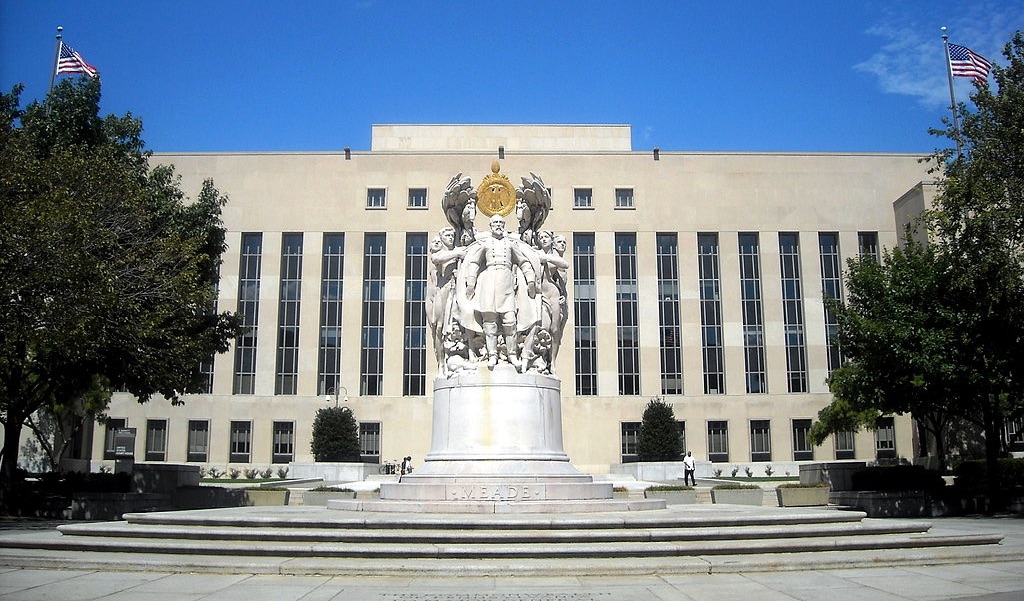Barring Transfer of John Doe Temporarily: An Overview of the Majority Ruling in Doe v. Mattis
What to make of the court's split decision.

Published by The Lawfare Institute
in Cooperation With

A divided panel of the D.C. Circuit has affirmed that the United States cannot transfer John Doe (a U.S.-Saudi dual-citizen held by the U.S. military in Iraq based on belief he was a member of the Islamic State) to Saudi Arabia involuntarily, unless and until the legal and factual grounds for considering him to be subject to the 2001 authorization for use of military force are resolved in the government’s favor. In short: The government can indeed transfer him one day, but only if they have the option in the alternative of continuing to hold him in military detention for the duration of hostilities.
I have a separate post forthcoming drawing attention back to an alternative that once dominated discussion of this case: whether Doe can be prosecuted. For now, I just want to provide a bare-bones overview of the majority’s rationale.
The majority casts the government as relying on two arguments in the alternative. On the first theory, Doe can be transferred based on an extension of Munaf, without respect to whether he was transferred properly in the first place. That is, the Valentine requirement of an affirmative statutory or treaty-based conferral of authority to transfer does not apply in the first place. On the second theory, the Valentine rule does apply but is satisfied here through the 2001 AUMF.
The majority rejects both arguments. Let’s start with the first one.
The majority concludes that Munaf (and, underneath it, Wilson) is and should be limited to circumstances where the receiving state seeks to prosecute the American for a crime committed within that state’s borders and where the person already is in that state’s territory (and voluntarily so). In declining to make an extension, the majority points out that there is no precedent for extending beyond those circumstances. This is true, but not necessarily dispositive given the novelty of Doe’s circumstances. It’s the rest of the argument that does the real work.
The majority points out that Munaf and Wilson involved transfer where the receiving state enjoyed territorial jurisdiction to prosecute the person, in circumstances where they had entered that state’s territory voluntarily and allegedly committed crimes there. The prospective transfer of Doe to Saudi Arabia (the opinion does not name them, of course, but we all understand it is the Saudis) in contrast involves a different head of jurisdiction—citizenship—and no nexus involving voluntary travel to or criminal conduct in the receiving state. And while the Saudis certainly would have prescriptive jurisdiction over Doe simply by dint of citizenship, the majority views this as a bridge too far for an extension of Munaf, since it opens the door to a wider array of circumstances in which the United States could seize citizens abroad and turn them over to other states with plausible claims of prescriptive jurisdiction.
As to the government’s second argument—that the AUMF applies to justify the transfer even Valentine rather than Munaf controls—the majority concludes first that the premise is correct. That is, the majority agrees that the AUMF would supply the requisite statutory basis for a transfer, so long as Doe is indeed a person subject to the AUMF and the transfer would be to a co-belligerent state. It concludes that transfer to allies during war is a “fundamental incident” of warfare, as that concept was used to elaborate the meaning of the AUFM in Hamdi. And it notes that the 2012 National Defense Authorization Act expressly referenced the possibility of transfer, helping to buttress this conclusion.
The next question becomes: Does that traditional understanding extend to a citizen detainee? Yes, the majority reasons. Hamdi itself applied the parallel authority to detain to a citizen, after all.
But the majority finds that the government cannot yet take advantage of this analysis of the AUMF, for it is in dispute whether Doe is within the AUMF’s scope. That question won’t be resolved until he has had the opportunity to challenge (through habeas) the legal and factual basis for his detention. This strikes me as correct once one accepts that Valentine controls and, thus, that the transfer requires a basis in a statute or treaty.
So what comes next? The government may seek en banc review from the D.C. Circuit or, more likely, file a cert petition with the Supreme Court. Meanwhile, there is more reason than ever (and there already was a LOT of reason) for the district court to rule on the merits of the underlying habeas challenge.
Might anything happen to derail things? There are two possibilities.
First, it appears the government is free to relinquish Doe, allowing him to walk out the door of wherever he is held in Iraq. Iraq might then arrest him, and might then transfer him to Saudi Arabia. This would be quite provocative, for surely ACLU would argue that such a sequence of events was pre-arranged to defeat the court’s ruling. I’m skeptical the government will try this route, but you never know.
Second, as I’ll write about more extensively, we could yet see an effort to prosecute Doe. Stay tuned.


.jpg?sfvrsn=d5e57b75_5)

